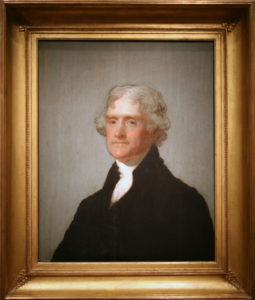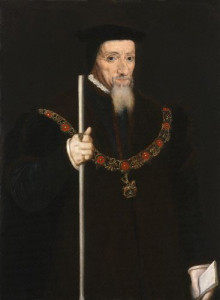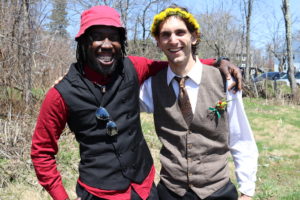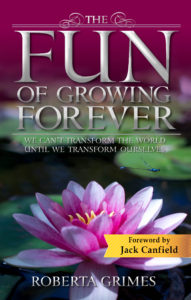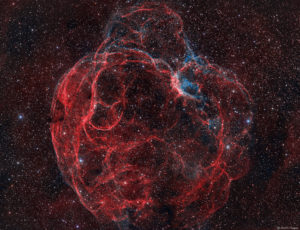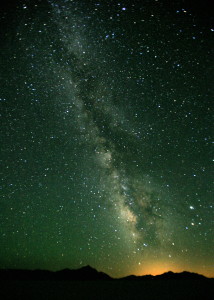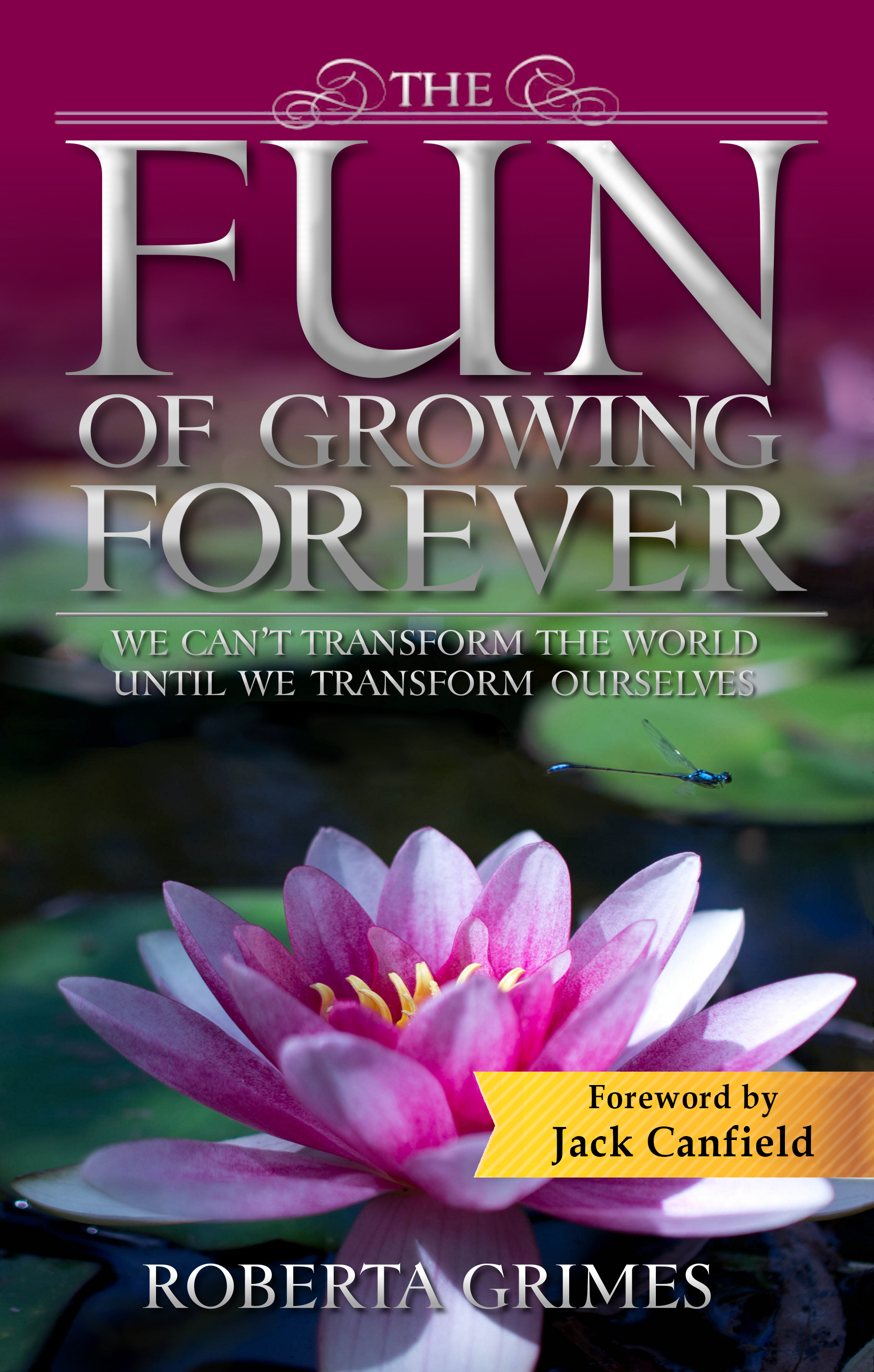 We are being told that “the veil between worlds” is thinning. And the evidence is everywhere! Where once all the things that we talk about here were considered to be woo-woo and fringy, now this whole field is trending mainstream. Surveys show that people are becoming steadily less religious but more spiritual. Easier and more frequent communication is happening now between the dead and the living; and astonishingly, just a year ago I began to hear from delighted widows whose dead husbands visit them in the night so they can again make love!
We are being told that “the veil between worlds” is thinning. And the evidence is everywhere! Where once all the things that we talk about here were considered to be woo-woo and fringy, now this whole field is trending mainstream. Surveys show that people are becoming steadily less religious but more spiritual. Easier and more frequent communication is happening now between the dead and the living; and astonishingly, just a year ago I began to hear from delighted widows whose dead husbands visit them in the night so they can again make love!
Additional evidence of the thinning of the veil between this physical reality and most of what exists is the amazing ease with which so many are working more openly with their spirit guides. We have been privileged to watch some of this unfold in the comments to these posts, and I hear from others by email who are deep in the wondrous feeling of finding themselves in waking contact with their spirit guides. This is brand, brand new! It is such a privilege to watch it begin, and even perhaps to help it unfold, although in this I am the most inadequate of experts.
Let’s briefly take a closer look at how this thinning of the veil is happening. We understand enough now about the physics of the greater reality to know that there is no actual “veil,” but instead the barrier between the dead and the living is an inherent property of consciousness itself. So this delightful thinning of the veil is telling us something very important about what is happening now to consciousness. To recap:
- Human consciousness is a limited version of the base creative force that continuously manifests this universe.
- Consciousness is all that exists. Everything that we think is real is merely an artifact of that base creative force.
- Consciousness exists in a range of vibrations from the lowest, which we experience as fear, to the highest, which we experience as love.
- Reality teems with beings whose own minds are part of that infinitely creative Mind, which is why A Course in Miracles tells us that there is only one of us here!
The fact that consciousness exists in a range of vibrations serves to stratify 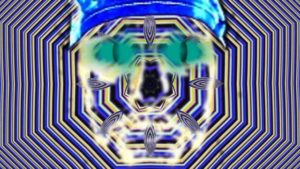 the beings whose minds all are part of that base creative Mind. Understanding this fact is crucial to our better envisioning the afterlife, and also to our better working with our spirit guides while we are in bodies. As the vibratory rate of consciousness increases, it becomes ever more powerful, so it is easy for beings to travel lower than their personal vibratory rate but it is unbearable for them to go higher. Accounts from those who are dead suggest that trying to move to a consciousness vibration that is higher and more perfectly loving than what they have naturally attained will buffet them with overwhelming energy.
the beings whose minds all are part of that base creative Mind. Understanding this fact is crucial to our better envisioning the afterlife, and also to our better working with our spirit guides while we are in bodies. As the vibratory rate of consciousness increases, it becomes ever more powerful, so it is easy for beings to travel lower than their personal vibratory rate but it is unbearable for them to go higher. Accounts from those who are dead suggest that trying to move to a consciousness vibration that is higher and more perfectly loving than what they have naturally attained will buffet them with overwhelming energy.
It is the fact that being in material bodies lowers our natural vibratory rate that makes communicating with the dead so hard. They can lower their personal vibrations and be close to us whenever they like! But still they are vibrating higher than we are, so usually we can neither see them nor hear them. Fortunately, our minds astral-travel nightly out of our sleeping bodies, and then we are able to vibrate high enough to meet with our loved ones and guides face-to-face.
Your primary spirit guide has been with you since before you entered your body, and he will be with you throughout this lifetime. (Many spirit guides are female, but I will use the male pronoun here.) You meet with your primary guide most nights, and you hear and feel him in the daytime, although you are so used to his presence that you tend to hear and feel him as a part of yourself. For all of human history, few of us have realized that each of us is essentially two beings!
So, what is different now? What has changed?
Notwithstanding the fact that everything seems to be spiraling out of  control, what we are living through is the earliest stage of the advent of the kingdom of God on earth. Jesus warned us that as the consciousness vibration of all humanity begins to rise, we will enter a period of tribulation. And what else might you call what is happening now? So this, then, must be why “the veil between worlds” is thinning. Higher-level beings not in bodies have been working for more than a century to raise all humanity’s consciousness vibrations away from fear and toward more perfect love, and their efforts are succeeding! It makes sense that as the consciousness vibration of this material level rises, we will be able to experience the non-material levels of consciousness more easily. Our spirit guides have always had access to us. Now we can have better access to them!
control, what we are living through is the earliest stage of the advent of the kingdom of God on earth. Jesus warned us that as the consciousness vibration of all humanity begins to rise, we will enter a period of tribulation. And what else might you call what is happening now? So this, then, must be why “the veil between worlds” is thinning. Higher-level beings not in bodies have been working for more than a century to raise all humanity’s consciousness vibrations away from fear and toward more perfect love, and their efforts are succeeding! It makes sense that as the consciousness vibration of this material level rises, we will be able to experience the non-material levels of consciousness more easily. Our spirit guides have always had access to us. Now we can have better access to them!
(And here my beloved primary guide has chosen to give us a demonstration. Nearly everything I ever have written has been channeled, but for the better part of a year he has been using these posts to teach me how to write. He gives me the ideas and I do the writing, and I am proud to say that I wrote the above with very little help! But when I tried to finish this post on my own, I was soon in the weeds. When I get off-track that way he lets me flounder until Saturday morning, when he channels his corrections. But our older daughter is here for the Mother’s Day weekend, for heaven’s sake, so I told him on Thursday night that I needed to keep my Saturday free! Then I woke up on Friday with the start of 1 Corinthians 13 singing in my mind.)
“If I speak in the tongues of men or of angels, but do not have love, I am only a resounding gong or a clanging cymbal. If I have the gift of prophecy and can fathom all mysteries and all knowledge, and if I have a faith that can move mountains, but do not have love, I am nothing. If I give all I possess to the poor and give over my body to hardship that I may boast, but do not have love, I gain nothing.
“Love is patient, love is kind. It does not envy, it does not boast, it is not proud. It does not dishonor others, it is not self-seeking, it is not easily angered, it keeps no record of wrongs. Love does not delight in evil but rejoices with the truth. It always protects, always trusts, always hopes, always perseveres.
“Love never fails. But where there are prophecies, they will cease; where  there are tongues, they will be stilled; where there is knowledge, it will pass away. For we know in part and we prophesy in part, but when completeness comes, what is in part disappears. When I was a child, I talked like a child, I thought like a child, I reasoned like a child. When I became a man, I put the ways of childhood behind me. For now we see only a reflection as in a mirror; then we shall see face to face. Now I know in part; then I shall know fully, even as I am fully known.
there are tongues, they will be stilled; where there is knowledge, it will pass away. For we know in part and we prophesy in part, but when completeness comes, what is in part disappears. When I was a child, I talked like a child, I thought like a child, I reasoned like a child. When I became a man, I put the ways of childhood behind me. For now we see only a reflection as in a mirror; then we shall see face to face. Now I know in part; then I shall know fully, even as I am fully known.
“And now these three remain: faith, hope and love. But the greatest of these is love” (1 Cor 13).
(Thomas tells me that my disparagement of Paul’s letters is in part deserved, but this passage was channeled to Paul directly from God. These words have all along been meant to guide us in this historical moment, so they have been preserved essentially intact through all the years and all the translations. Thomas tells me it is our task now to teach these words to the followers of Jesus as a modern divine revelation. I spent my Friday morning sitting with this news. Then Thomas channeled the rest.)
The only thing that matters at all is for every being in all of reality to learn and practice ever more perfect love. The Christian religion is dying because it ignores the Master’s words about love and it also ignores these words of Paul. Instead, it continues to  use the most unloving aspects of the Old Testament to aggressively guide its followers toward judging others, sowing fear instead of love, and shamefully excluding the very souls who need our tenderest love and care. So the ongoing death of traditional Christianity is God’s divine judgment. As Paul prophesied:
use the most unloving aspects of the Old Testament to aggressively guide its followers toward judging others, sowing fear instead of love, and shamefully excluding the very souls who need our tenderest love and care. So the ongoing death of traditional Christianity is God’s divine judgment. As Paul prophesied:
“When I was a child, I talked like a child, I thought like a child, I reasoned like a child. When I became a man, I put the ways of childhood behind me. For now we see only a reflection as in a mirror; then we shall see face to face. Now I know in part; then I shall know fully, even as I am fully known” (1 Cor 13:11-12).
In all its 40,000-odd variations, Christianity clings to its fear-based childhood. And as it dies, from the ashes of that human-made religion will rise at last the genuine movement that Jesus came to begin.
The reason why so many people are now being invited by their primary guides to begin a closer working relationship is that legions of God’s elevated beings have begun to raise this planet’s conscious vibration. But their efforts are just the start! As Jesus tells us in the Gospels, it is going to be the work of His followers to continue to raise the consciousness vibrations of all of humankind, to the point where the the kingdom of God dawns on earth.
And the most effective way for this to happen will be for as many of us as possible to allow our spirit guides to work through us more directly. As individuals you and I can do little! But with the love and care of spirit guides who serve in our lives as God’s own minions, we can become the Lord’s army of love. Jesus is saying to us now, “I am sending you out like sheep among wolves. Therefore be as shrewd as snakes and as innocent as doves… do not worry about what to say or how to say it. At that time you will be given what to say, for it will not be you speaking, but the Spirit of your Father speaking through you… So do not be afraid of them, for there is nothing concealed that will not be disclosed, or hidden that will not be made known. What I tell you in the dark, speak in  the daylight; what is whispered in your ear, proclaim from the roofs… And even the very hairs of your head are all numbered. So don’t be afraid” (MT 10:16-31). “Go and make disciples of all nations … And surely I am with you always, to the very end of the age”(MT 28:19-20).
the daylight; what is whispered in your ear, proclaim from the roofs… And even the very hairs of your head are all numbered. So don’t be afraid” (MT 10:16-31). “Go and make disciples of all nations … And surely I am with you always, to the very end of the age”(MT 28:19-20).
Thomas felt that we needed to understand why our working more closely with our guides is becoming especially important now. Next week we will continue our discussion of how we can more easily make that happen.



